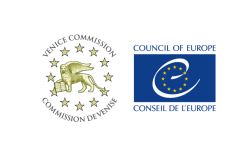
Op 18 oktober 2021 publiceerde de Commissie van Venetië een rapport, waaruit blijkt dat Nederland een stevige tik op de vingers krijgt van Europa. De Commissie van Venetië is een onderdeel van de Raad van Europa en wordt ook wel de Europese Commissie voor Democratie door Recht genoemd.
In het rapport wordt ingegaan op de coalitiedwang en politieke cultuur in Nederland. De commissie verwijst hiermee naar de tegenwerking van de kritische Kamerleden Leijten, Lodders en Omtzigt. Dit zijn de politici die opkwamen voor het lot van de gedupeerden in de toeslagenaffaire maar werden tegengewerkt door of hun eigen coalities en/of de regering. Stukken werden niet gedeeld en er werd zelfs gelogen. Niet voor niets is het kabinet hierover gevallen.
Dit rapport is gekomen omdat Pieter Omtzigt in januari 2021 een motie heeft ingediend welke werd aangenomen door de Tweede Kamer. Er werd besloten om een advies op te laten stellen door de Commissie van Venetië over de rechtsbescherming van burgers in Nederland, met name onder het bestuursrecht (inclusief reikwijdte, rechtsbescherming, marginale toetsing en rol Raad van State) en over het stelsel van macht en tegenmacht in theorie en praktijk, inclusief de Staten-Generaal en de rechterlijke macht.
Hiermee sloeg Omtzigt de spijker op z’n kop. Gedupeerden werden niet of onvoldoende beschermd en dat is nu dus door ‘Europa’ onderzocht. Omtzigt noemde in het tv-programma Jinek de belangrijkste conclusies:
- Het zou mogelijk moeten worden voor een minderheid van de Tweede Kamer om een onderzoek of hoorzitting af te dwingen. Nu moet minimaal de helft van de Kamerleden daarmee instemmen. Omdat de coalitie (de regeringspartijen) de meerderheid aan Kamerleden heeft, wordt zo’n onderzoek bijna nooit ondersteund. Daardoor is er gevaar dat er te weinig ‘checks & balances’ binnen het systeem bestaat. De coalitie kan haar eigen beleid beschermen door geen onderzoek toe te staan.
- De Kamer zou de wetgeving die zij opstelt altijd goed moeten toetsen aan de Grondwet. In de Grondwet staan – onder andere – de belangrijkste rechten en plichten van burgers. Hierin laat de Kamer steken vallen en is er onvoldoende bescherming voor burgers. In Nederland mag de rechter niet toetsen aan de Grondwet en dat zou moeten veranderen. Ook in landen om ons heen is de rechter wel bevoegd om aan de Grondwet te toetsen. Dat biedt meer bescherming aan burgers.
Voor de echte die hards is hier het rapport in het Engels te vinden en hieronder staan de aanbevelingen zoals gedaan door de commissie:
A. Legislative power:
• the inclusion of hardship or proportionality clauses should be considered for future
legislation where this is appropriate to the specific objectives and design of the policy at
issue;
• in appropriate parts, new legislation could include provisions that recall or restate general
basic principles of good administration;
• the Rules of Procedure of Parliament could be changed to facilitate scrutiny of the
executive, this could be done, for instance, by extending the rights of 30 MPs also to
initiate hearings and parliamentary investigations or ensuring that a standing committee
has specific responsibility for effective scrutiny of laws and their application for
compliance with general principles of good administration and the rule of law;
• the right of Members of Parliament to full information without delay under Article 68 of the
Constitution should be made be practical and effective;
• both committees and individual MPs should benefit from sufficient staff and resources
that are earmarked for scrutiny of the government and laws;
• as concerns attitudes, while this cannot be imposed through legislation, it should be seen
as acceptable and even normal that MPs from government parties also represent
Parliament as an institution and that participation in parliamentary scrutiny of the
government is not an act of disloyalty.
B. Executive power:
• The information flow within civil service and up to the ministerial level, notably on issues
that go against current policy, should be improved;
• for individuals, access to relevant information should be made easier, complaint
procedures should be made simple and informal and help should be offered on how to
complain under a duty of neutrality; the executive should review its Instructions on
legislation and amend them as necessary to ensure that its internal assessment of the
quality of legislation includes effective monitoring for compliance with basic principles of
good administration and the rule of law, such as legal certainty, legitimate expectations,
non-discrimination, individual assessment and proportionality;
• the executive should assess and ensure the quality of the law, both when preparing
legislation to be submitted to Parliament and when it applies new legal provisions, taking
into account possible scenarios and risks; such assessments should be reviewed when
appropriate;
• the executive, the Data Protection Commissioner and other relevant bodies should follow
the developments in Artificial Intelligence closely and new developments should be taken
into account in the design of future AI systems and when existing ones are reviewed;
• sectoral information should be shared widely within the administration to enable relevant
input also from other sectors of the administration.
C. Judicial power
• Channels could be established for the judiciary to draw the other branches attention to
legislation which is giving rise to systemic problems in practice;
• based on a profound analysis, it could be considered whether Article 120 of the
Constitution should be amended, or whether other mechanisms of constitutional review
should be introduced.
